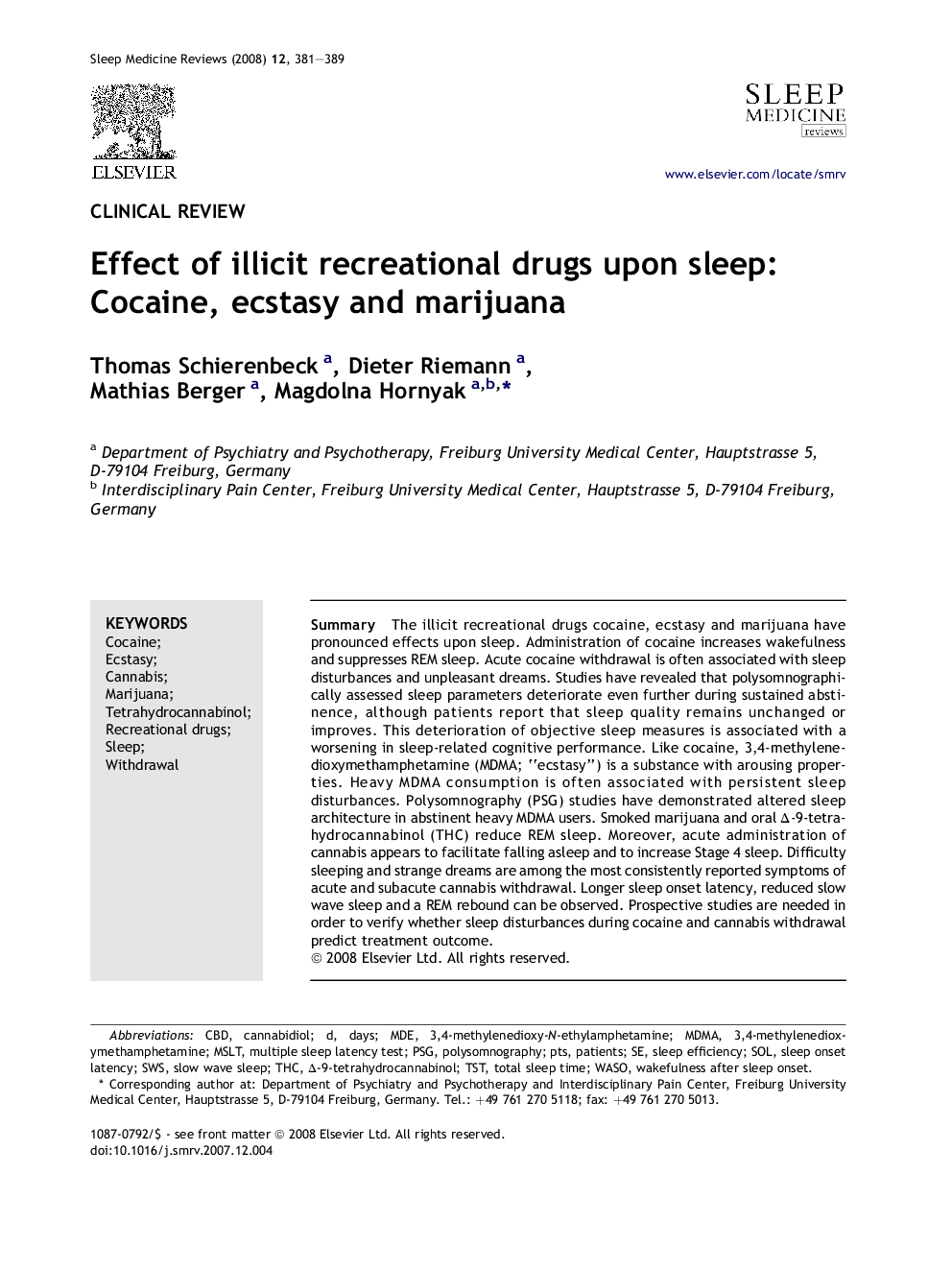| Article ID | Journal | Published Year | Pages | File Type |
|---|---|---|---|---|
| 3091736 | Sleep Medicine Reviews | 2008 | 9 Pages |
SummaryThe illicit recreational drugs cocaine, ecstasy and marijuana have pronounced effects upon sleep. Administration of cocaine increases wakefulness and suppresses REM sleep. Acute cocaine withdrawal is often associated with sleep disturbances and unpleasant dreams. Studies have revealed that polysomnographically assessed sleep parameters deteriorate even further during sustained abstinence, although patients report that sleep quality remains unchanged or improves. This deterioration of objective sleep measures is associated with a worsening in sleep-related cognitive performance. Like cocaine, 3,4-methylenedioxymethamphetamine (MDMA; “ecstasy”) is a substance with arousing properties. Heavy MDMA consumption is often associated with persistent sleep disturbances. Polysomnography (PSG) studies have demonstrated altered sleep architecture in abstinent heavy MDMA users. Smoked marijuana and oral Δ-9-tetrahydrocannabinol (THC) reduce REM sleep. Moreover, acute administration of cannabis appears to facilitate falling asleep and to increase Stage 4 sleep. Difficulty sleeping and strange dreams are among the most consistently reported symptoms of acute and subacute cannabis withdrawal. Longer sleep onset latency, reduced slow wave sleep and a REM rebound can be observed. Prospective studies are needed in order to verify whether sleep disturbances during cocaine and cannabis withdrawal predict treatment outcome.
